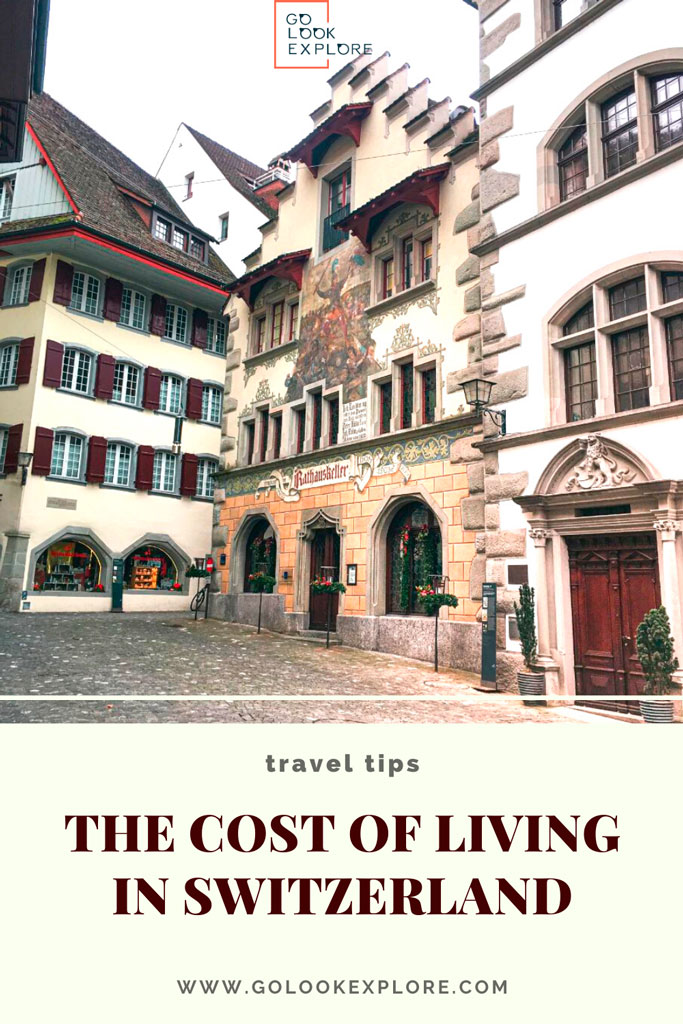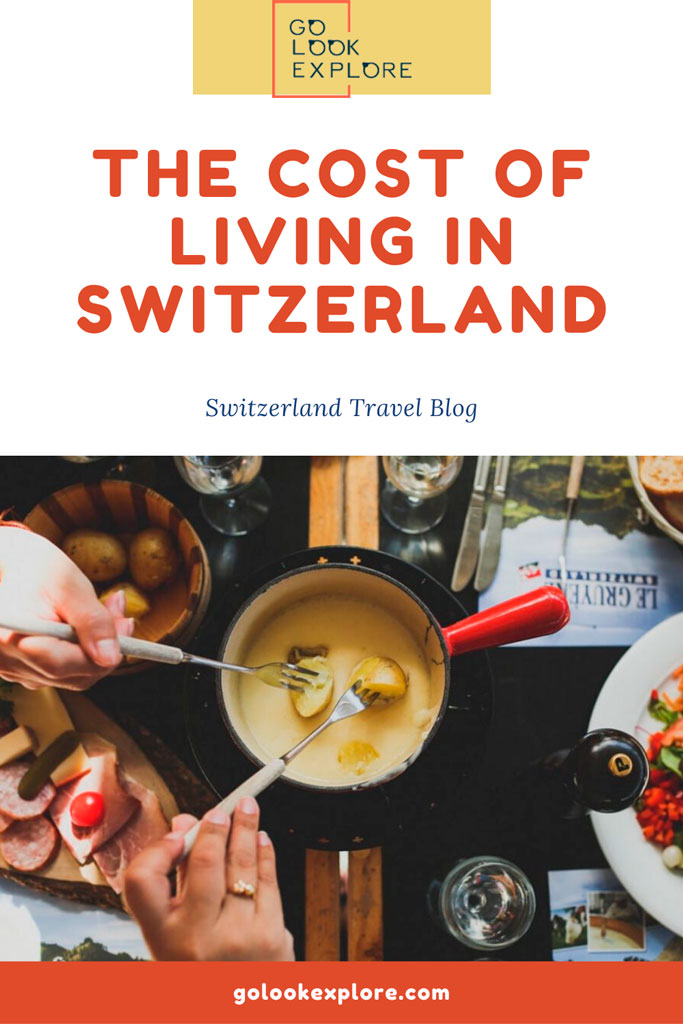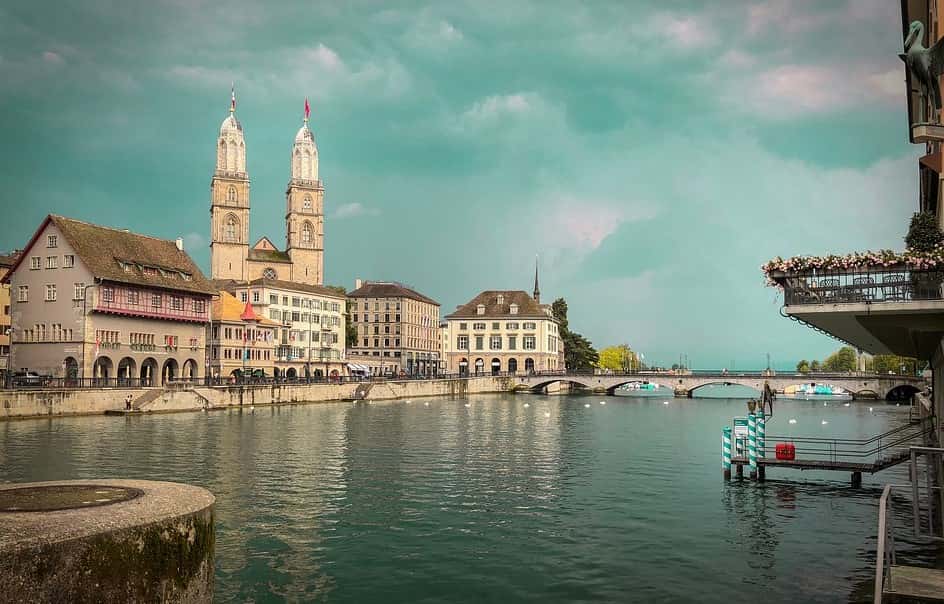Switzerland is one of the wealthiest countries in the world, and the cost of living in Switzerland is quite high. Exclude countries like Liechtenstein (uses the same currency), Monaco (the harbor of billionaires), and economic havens such as Macau, Switzerland probably enjoys the highest salaries in the world followed by inflated prices.
The average salary in Switzerland is not easily defined, but as it stands at the end of 2021, the average salary is around 4,500 CHF (approximately 4,100 EUR).
If you get a job here: kudos to you! In my opinion, it is one of the most beautiful and safest places in the world. It has so much to offer, especially for nature lovers. Switzerland is full of scientists, bankers, inventors, IT people – it is a friendly and extremely diverse society here.
The beginning of life in Switzerland can be a bit frustrating (if you do it all by yourself) but don’t be discouraged, it is worth coming here.
So let’s have a look at the cost of living in Switzerland:
Table of Contents
Cost of Living in Switzerland – Expat Guide for 2023
I’ll split living costs into a few different categories:
- Rent prices and how to rent an apartment in Switzerland
- Public transport prices (cars, import, train, trams)
- Food & Restaurant prices & shops to buy cheap food/ingredients
- Utilities (water, internet, electricity)
- Leisure (from cable cars to cinema tickets)
- Miscellaneous
How to Find Cheap Apartments & Average Prices
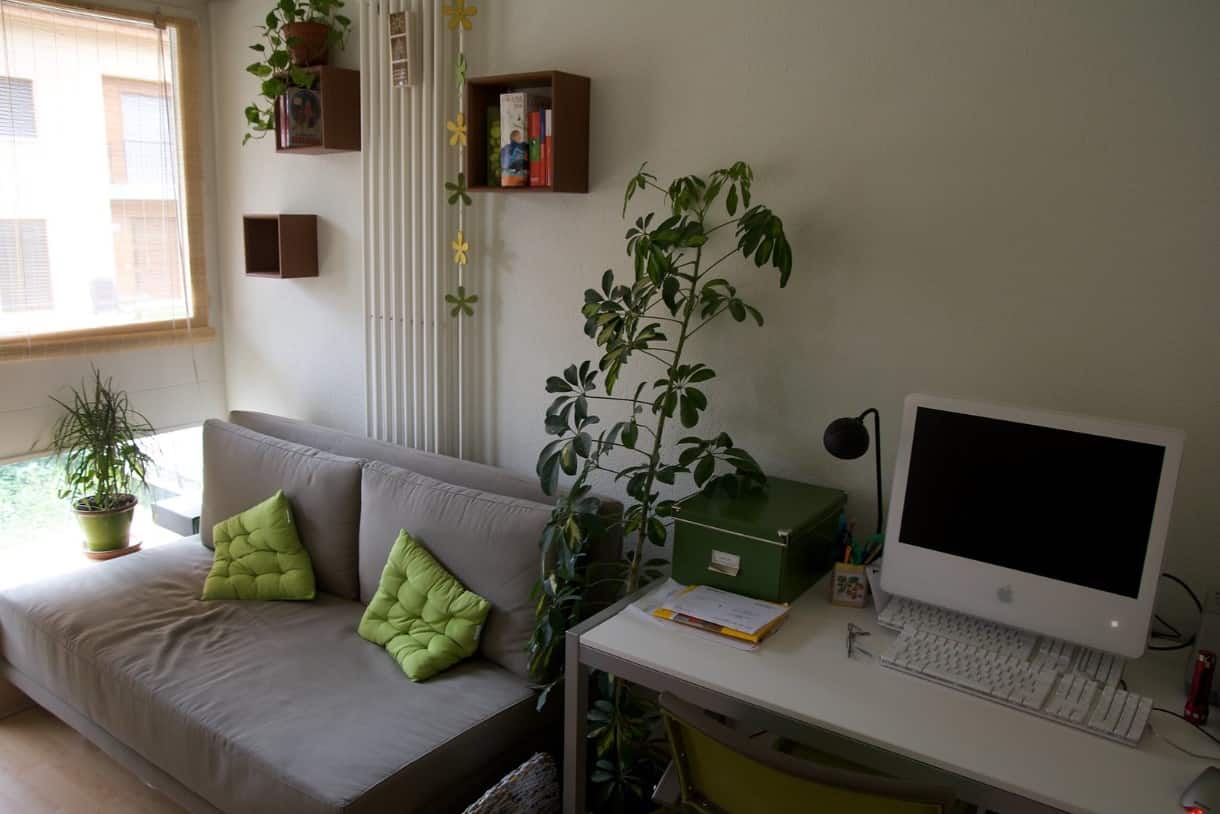
It all depends on where you live and what kind of apartment you are looking for. Apartments are definitely more expensive in big cities like Zürich and Geneva and much cheaper in rural areas.
I currently live in Basel, and we rent an apartment, very close to Basel’s old town (2 minutes’ walk). A 2-room apartment costs us 1,300 CHF/month. What is crazy about the rent: in the of 2020 the interest rates dropped in Switzerland so our rent even got lower. I have never heard about such a thing in my life.. that the rent price can get down.
Learn more about Basel:
- 11 Exciting Things to Do in Basel
- 7 Family-Friendly Day Trips From Basel
- Pros and cons of Living in Basel
- Pros and cons of Living in Zürich
It’s like almost everywhere – the farther from the city center you go, the lower the prices. Don’t worry if you’re a bit out of the city center as public transport connects everything with the center, and it’s an affordable way to travel, especially if you get the monthly pass.
If you would like a more prominent place, with three bedrooms, the price goes up to 1,700 – 2,500 CHF.
If you want to rent a house with 3-5 rooms, 2-3 floors, be ready to pay 3500 – 4500 CHF a month. But there are really a lot of nice houses, not even so far from the city center.
If you are moving into Zürich, be ready to pay for a small apartment (1.5 rooms), not central, at least 1,500 CHF, and higher. Suitable central apartments in Zürich would cost you at least 2,500 CHF. And then the sky is the limit, prices can get very high for very nice renovated apartments close to the city center.
If you want to get cheap rent in Switzerland, you may have to move out of a bigger city, go to smaller villages or outskirts, then you can find a decent apartment for 1,000 CHF or even lower. For a single-person apartment, you can find comfortable rooms in shared apartments for 500 – 800 CHF.
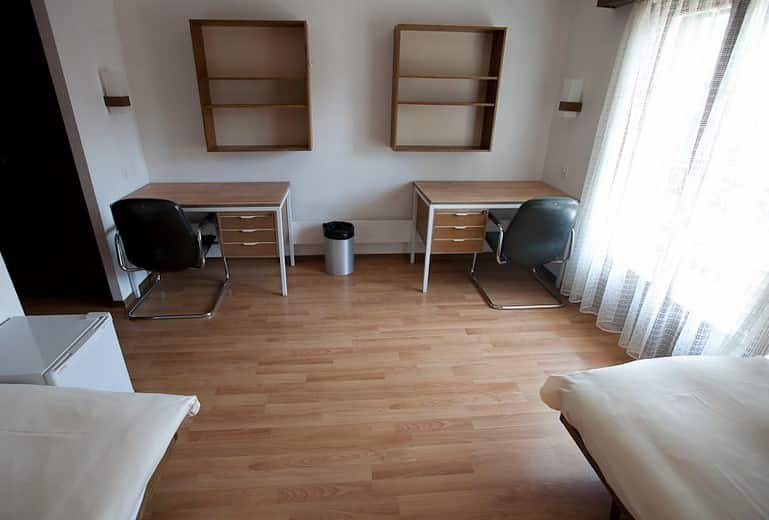
You can check different prices of apartments and houses on this website to get a better understanding of the rent prices and what’s there on the market.
If you want to live in a city, but prices in Zürich or Geneva are simply too much for your wallet, you can always check smaller cities such as Basel or Lucerne. The value and life quality you get for the money simply beat Zurich or Geneva, in my opinion.
The other very popular option: live in the suburbs of the big cities. The public transport connections in most cases are excellent: trains go very often to big cities from any village or suburb around the big cities. Worst case scenario: a bus. But buses are in great shape in Switzerland and even from the smallest villages it they go at least once an hour.
How to Rent an Apartment in Switzerland & Required Documents
I don’t know where you come from, but in Switzerland very very rarely does a family or person have a separate apartment to rent. Most of the apartments are rented by big companies or the government. Once you want to rent it, you must visit the apartment and then apply for it (fill out a form of application, mostly those forms are provided during your visit). And there’s no guarantee you are going to get it even if you want it and say, “I want this apartment right now” during your first visit.
Sometimes during these visits, apartments are full of visitors (you will feel like in a crowded museum) or you will meet the current renters who will show the place. But all will be decided not by current renters, but by the company that owns the apartment. The company will check all your info, compare it to the people who are living already in the building, and then if you are lucky, you will get a positive answer that you can rent it.
It can be frustrating as the process is pretty long, and to rent an apartment while being out of the country is almost impossible (of course, some companies can help, but then it costs more).
It is easier then just to rent a room (if you really need something very fast). From there, you can start looking for your long-term apartment and applying for prospects.
Once you apply and get a positive answer, you are officially eligible to sign a contract (but before they will check your living permit, your job contract, and other personal information), pay the rent and move in. Renting an apartment with no job and grant is possible, but can be a real nightmare.
I can’t advise you more to plan everything before moving to Switzerland & prepare yourself financially if things don’t go as planned.
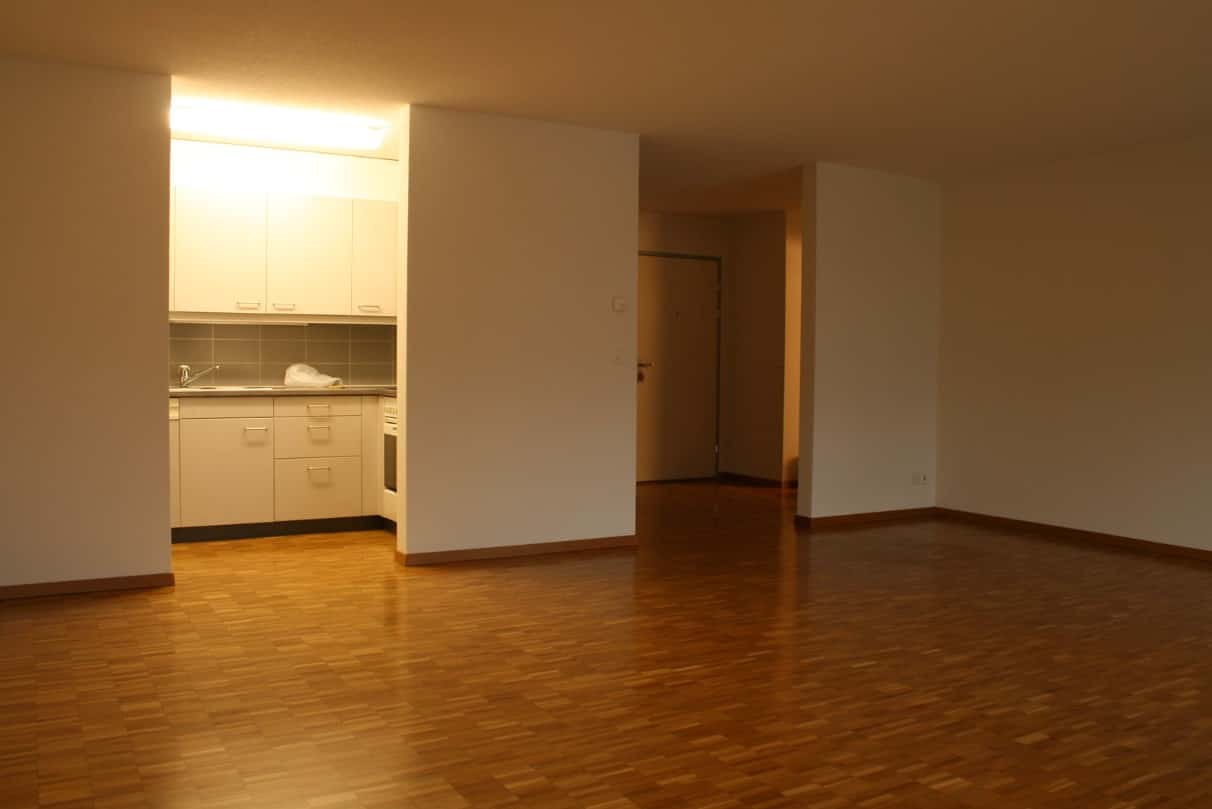
Be aware that most of the apartments come unfurnished. At most, they will have a fridge, an oven, some cupboards in the kitchen, a bathroom appliances.
Forget about tables, beds, shelves, carpets, and other furniture. Once you move in, of course, you don’t need much: just a place to crash and prepare some food. Furnishing your apartment is entirely on you. There are quite a few IKEAs in Switzerland, so you can always find affordable and modern-looking furniture.
My tip: if are a newcomer to Switzerland and do not have a job offer yet and just would like to try it out, I highly recommend renting an apartment or a hotel room in France or Germany (if you are coming to Basel), or Italy, France, Austria (depending where do you want to start). There are thousands of workers who cross the border each day to Switzerland, so it will not be a problem for you to live in another country and go to interviews or even work in Switzerland in the beginning. Most of small borders are pretty loose, they don’t check each person, you can simply walk into the country and walk out. Some borders even have undisturbed tram or bus lines.
The prices in surrounding countries most of the time are two times smaller, so for the start, it’s a great way to save some money.
If you can not live in another country in the beginning and you want to look for a job, let’s say in Bern: a hostel or B&B can be a great option for the first month.
Are There Any Other ‘Hidden’ Costs of Renting Apartment in Switzerland?
Don’t forget about the deposit! The usual practice in Switzerland is paying at least two months upfront as a deposit plus the monthly rent for the first month. Be sure to add that up in your financial planning.
To avoid that big payment, you can buy insurance for an apartment: but this insurance doesn’t cover fires, water damages, burglaries, or something like that, it covers just your deposit. This insurance can cost 200-300 CHF a year.
I must mention as well, that to rent an apartment in Switzerland without a permit (which lets you live in Switzerland) is almost impossible. You must have at least L Permit (which enables you to search for a job in Switzerland), and B Permit is even better (you get this once you get a job there).
Utility Cost in Switzerland
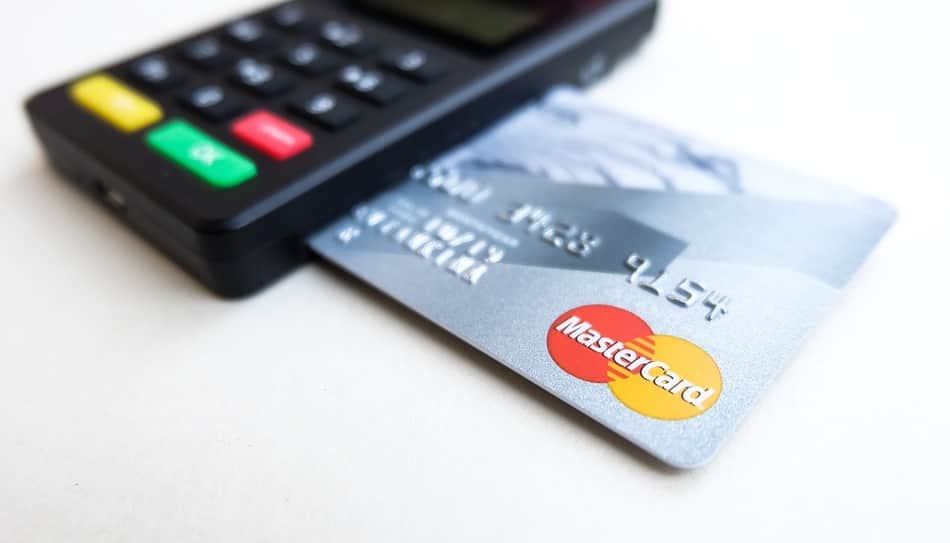
Utilities in Switzerland, compared to the salaries, are pretty cheap. There are a lot of different systems that you may pay for utilities, but let me explain how we pay it.
Water: every three months; 10-15 CHF per month.
Electricity: once per year; on average 40 CHF per month (if we overpay it, then we get that money back).
Internet: once per month; 59 CHF per month for unlimited GB. I can recommend internet providers such as Swisscom, Salt, and Sunrise.
Garbage & Cleaning: In Basel, we have a pretty impressive system, but I saw that this system works in many other Swiss cities as well. You do not pay for garbage in Switzerland, you buy garbage bags in the shop, AND you are only allowed to dispose of your trash in those bags, otherwise, you will get a fine. We pay 23 CHF for 10 bags (35 liters). For us, one bag is good enough for one week. So one month sums up to 9-10 CHF. You can dispose of all your paper once a month for free. If you have to dispose of something big (maybe a table, a TV or something), you have to use a sticker which is provided to you by the city, or you have to buy additional ones. Do not leave some big stuff on the street.
There are some costs for cleaning the stairs and maintenance as well, but that doesn’t come up too much.
I must mention a couple of other things: in most apartments in Switzerland there is no washing machine, and you will have to use the washing machine in the cellar. You won’t have to pay additionally for that, but usually, you will get ONE day per week to use or ONE day per two weeks.
I find this system ridiculous, but it is how it is. Once you adapt, it is no problem, but it bothers me that you can not wash your sports clothes right after training or some other activities.
Other costs: You will get the invoice to pay for the TV and Radio in Switzerland. That money goes to national Swiss TV and Radio just to keep them separated from the government and not to be influenced by any politicians. That is a brilliant system, but all immigrants must pay it as well. You will get angry once you get this invoice, especially if you do not use TV (or don’t have it, that was my case), but there’s almost no way to avoid it, so you have to pay it. If nothing, you’re spending so the country won’t get corrupted by politicians and you have a better place to live and work.
Another very interesting thing is the church bill (I know it is not utilities, but it is a rather interesting topic). Once you come and apply to get a permit in Switzerland, they will ask your religion. IF you mark CHRISTIANITY, you will have to pay for that. Every year.
And it is tough to reverse this thing. Documents will go even to the Vatican that you disavow your religion. So if you are not a big-time Christian and do not plan to visit the church every week, better check that you are without faith, and no harm will be done.
All in all, utilities, for an average apartment in Switzerland, shouldn’t get higher than 100-150 CHF a month.
The total cost of apartment rent and utilities in Switzerland
As stated above: it depends on what kind of apartment you are looking for, but let’s assume that in the beginning, you are looking for a small 2 rooms apartment in not a very fancy location:
In Basel, the total cost can be around 1500-2000 CHF a month for a very comfortable place. All utilities included.
If you rent just a room in the apartment, you can easily get around with 1000 CHF a month.
In Zürich: add at least 500 CHF more. But maybe you will land a better job in Zürich, than in Basel or St. Gallen?
In Geneva: similar prices to Zürich. The apartment will cost around 2000 CHF a month.
After that, the prices can go up: you rent a bigger place, a new place, just renovated place, a place close to the city center and so on.
Transport Costs in Switzerland
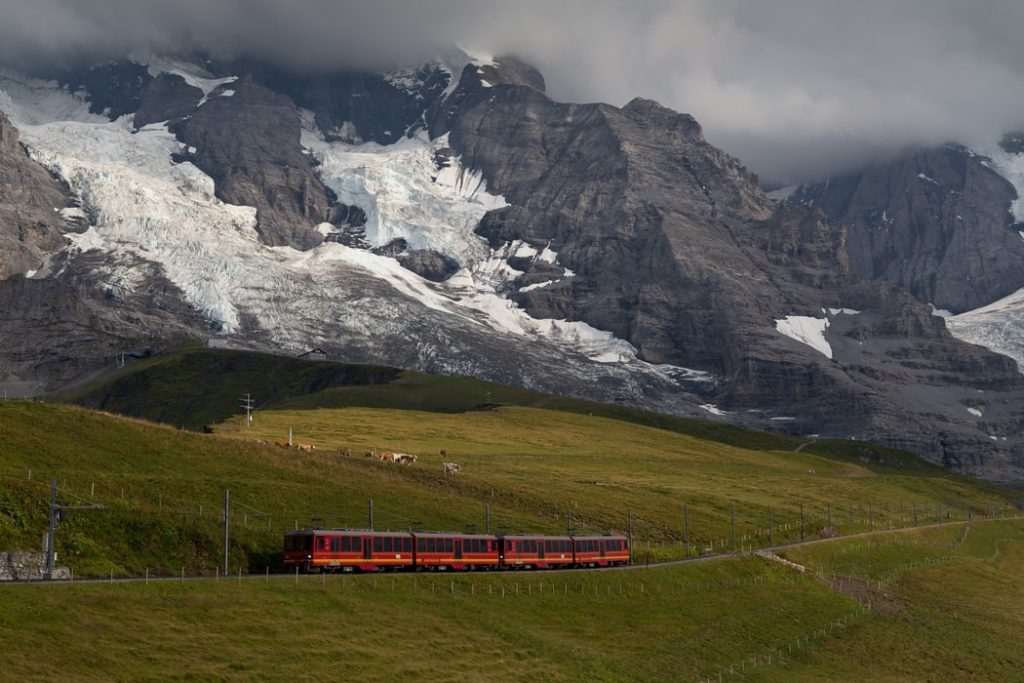
One thing you must consider before moving to Switzerland – you have up to one year to move your car and register it in Switzerland for free. After that, you will have to pay a bunch of taxes (VAT, import, documents, etc.), fill out a lot of forms, visit all the offices to check your car, and so on.
And you have to rush all of the things as you will have a limited time frame after you enter with that car into Switzerland and border people check it. That is a massive pain in one place. I did it, and I regret it not doing before.
If you have a car in Switzerland, you will have to pay for pollution taxes, car taxes, insurance, and parking taxes. All CO2 taxes, pollution taxes, insurance taxes for a middle size will be around 1500 CHF a year.
Be aware that in Switzerland cities there are almost ZERO free parking places. They are all blue marked in any tiny street you will go to. You have to pay a yearly fee so you can park your car in the city.
If you get a permit to park your car in Basel, you won’t be able to park it unlimited in Luzerne or any other city. My parking ticket for one zone in Basel costs 280 CHF in 2021. And as mentioned parking ticket is just for one zone in Basel, not for the whole city.
You can, of course, park a car in a rented garage or parking spot, but it mostly costs around 200 CHF a month. For a motorcycle, it can be much less, from 20 CHF a month.
One very bizarre thing is that petrol here is cheaper than diesel. I guess it is because of extra taxes on diesel. So diesel/petrol costs around 1.60 CHF a liter. It can be much more expensive on highways (once I paid 1.90 CHF a liter on the road to Geneva), so always fill your tank in the city.
Ok, let’s go to trains. If you don’t have a car and want to travel a lot in Switzerland, you must get a half fare card from SBB (that’s a card which lets you pay half fare all the time). You can find all information here: SBB half fare card. I have paid 185 CHF for the whole year and every ticket is now half price. Crazy enough, this card can pay off just in a couple of trips, because train rides are pretty expensive in Switzerland. I need to travel from Basel to Zermatt couple of times and my travel card will be paid off.
There are some other great options. For example, a General Abonnement (GA Karte) card with which you can travel all year in Switzerland as much as you want, but it costs over 4000 CHF, so just think if it is something you need. If you decide to pay monthly, it will cost you 340 CHF a month and if you travel to your work at least 2 times a week (let’s say from Basel to Zürich) this card is really worth it. And just think about it – on the weekends you can go with this card wherever you want in Switzerland.
You can find a full guide about trains in Switzerland right here: How to use trains in Switzerland.
Most of the big cities have trams, and you can get a monthly or yearly tram card. You must check all information about your location and the options. I mostly walk around, so I have never had a tram card.
Biking is very popular in Switzerland, it is not like in Denmark, but very close to it. You can get a pretty decent used bike for 100-200 CHF and then travel around the city for free. Pretty much all apartment houses have free bike parking places or even storage in cellars. Swiss cities have many biking paths, routes and drivers are pretty bike-friendly in Switzerland. All train stations as well have huge bike storage places.
Food Prices in Switzerland & Shops to Buy Cheap Ingredients
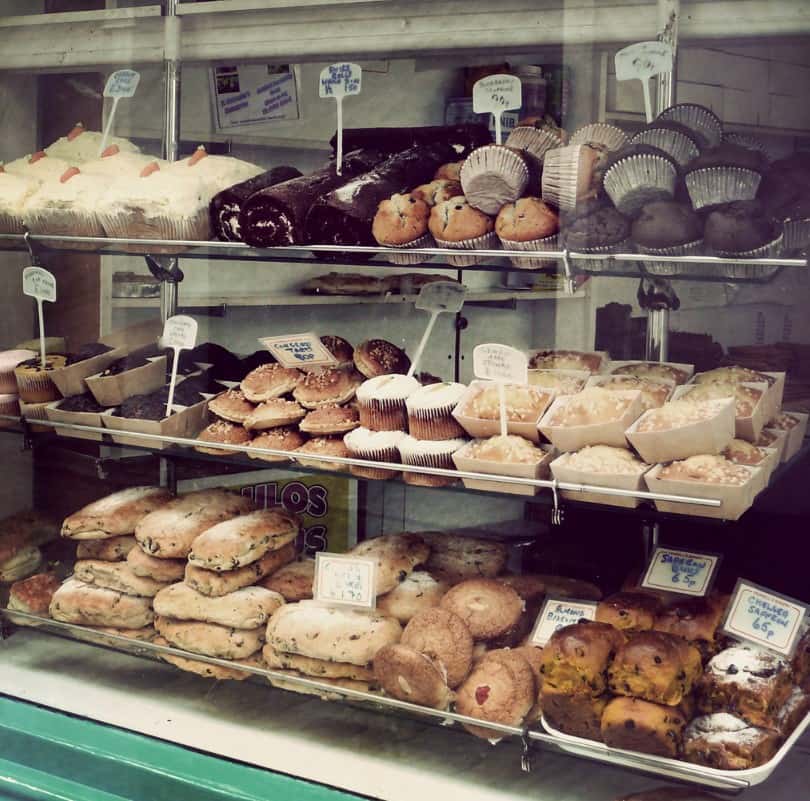
Well, food in Switzerland is the most expensive in all over Europe. That is why quite many people go to buy a lot of food in Germany, Italy or France. Basel is right on the border, so people go to Germany a lot. There are supermarkets right on the border, literally 50 meters from the official border.
Keep in mind that Swiss people get the highest salaries in Europe, so, typically, prices are quite high as their purchasing power matches the costs.
One costly thing is meat. If you want to save some money, avoid any kind of meat in Switzerland. It is expensive and can be a 30-50 CHF per kilogram.
The kilogram of meat is veeery expensive and can cost from 30 – 50 CHF. Now, if you want to save some money, you should cook at home and buy ingredients at Denner, Aldi, Lidl, and small Turkish shops. In smaller villages you will see VOLG shops, they are quite cheap as well. The more expensive shops are Coop and Migros. Check the grocery guide in Switzerland.
It depends on your need and how much you eat, what kind of food you eat, and so on, but I would say that I spend about 15-25 CHF per day on food (if I cook all at home). If you go out, add at least another 20 CHF and more. In Coop or Migros (I know, more expensive shops) there is quite a lot of branded products (MIGROS BRAND) which are good quality and cheaper.
Some prepared salads can cost 5-10 CHF, and prepared food that you need to heat in a microwave (pasta, potatoes with meat, etc.) can cost 5-10 CHF for one portion. A prepared salad in the shop will cost around 12 CHF.
A good meal in a restaurant can cost around 20 CHF (pizza, lasagna, a meal with meat), but takeaway pizza can start from 10 CHF, or Kebab averages at 12 CHF.
Cappuccino at Starbucks starts at 7-8 CHF.
If you do not overspend and eat only at home, you can get around with 300-500 CHF a month for one person.
If you start to go out: to restaurants, takeaway places, Starbucks coffee, and so on: your monthly food expenses can easily get to 1000 CHF.
TIP: Switzerland has a very cool app called TooGoodToGo where you can buy food each day that is going to expire the next day. But do not worry, the food is always in the best shape and very delicious: you can get bakery goods, sushi, Chinese foods, pizzas, and many other options. This can save you a lot of money and you will help to stop the waste of food as well.
Leisure Costs in Switzerland

It is where it can get costly, but if you do not have any specific hobbies (tennis, sailing), you should get around pretty good.
Ok, so the cinema ticket is around 22 CHF. It can get more expensive for 3D movies. Usually +3 CHF.
Cable car tickets (if you are passionate about mountains) can be from little as 12 CHF to a whooping 100 CHF. If you want to visit the famous Gornergrat in Zermatt – back and forth ticket will cost you 126 CHF.
A meal in a good restaurant will cost at least 30 CHF for one person. Three-course dinner will cost from 30 to 70 CHF and much more in fancy restaurants. That includes soup/salad + hot meal (with meat) + dessert. For drinks, you will have to pay additionally.
Fancy a luxurious dinner in a Michelin Star restaurant? Then be ready to pay around 200 CHF per person (with wine).
Coffee is costly, and one cup of cappuccino costs 5-8 CHF while espresso averages around 3-4 CHF.
A gym membership is always better to buy for the whole year as the monthly fee will be lower. For instance, 50 – 60 CHF/month if paid annually, compared to 90 – 120 CHF if you pay monthly.
Social or sports activities like yoga, dance classes, rock climbing, and language school can be from 100 to 300 CHF. I pay 300 CHF/ month for the German courses.
Ski pass prices can vary depending on the size of the ski resort: if you want to go to a fancy Jungfrau ski resort, be ready to pay 70-100 CHF per day, if you go to a smaller resort (with up to 100 km of ski slopes) – prices go down to 50-60 CHF a day.
Running club membership – running clubs are very cheap in Switzerland and you will get a lot for that. In Basel, I pay 90 CHF per year and that includes professional runners consultations, specialized running programs, meeting, and running together 2-3 times a week, always a nice and neat place to change your clothes and even showers.
Other Costs in Switzerland
If you are employed in Switzerland, you must pay social security yourself. It is not like in most European countries where the employer pays it for you. In Switzerland, you get a salary, and you pay it yourself. That is mostly 300-350 CHF a month, and it is excellent health insurance that covers everything. Your deductibles will be around 2500 CHF.
Ask all the possible questions in the social security company about deductibles, where you can get help, what kind of hospitals you can use (sometimes you can use hospitals just in your canton), what is covered, and so on. For me, coming from a country where you don’t even think about social security as it is all covered, the system in Switzerland was a bit frustrating in the beginning.
Children can get pretty expensive in Switzerland. Usually, women get here very short maternity leave, and the country pays almost nothing to you. You have to pay for your kindergarten yourself, and that can be 2,000-2,500 CHF a month.
Inflation in Switzerland in 2023
Even though the whole world is experiencing fast-growing inflation, Switzerland is actually holding up very well and the prices are not growing as fast as in other countries like the USA or the UK. Actually, the inflation rate in Switzerland is the second-lowest in OECD countries: only 2,9% (which is actually very normal every year inflation). The lower inflation is just in Japan.
So you should not worry that suddenly prices will be much higher as mentioned above. Everything should be under control and you maybe experience some price deviations in different cities and places, but not massive changes.
Total monthly expenses of living in Switzerland
You can easily get around with 2500 – 3000 CHF a month in Switzerland. Easily. If you are not used to fancy lifestyle, no clubbing, no expensive dinners – 2500 CHF should be really enough. If you think that is a lot, just remember the average salary in Switzerland which is more than 4000 CHF a month. So you can even save up a lot of money.
Even when you travel around in Switzerland, you don’t need to spend money on expensive cable cars (you can hike), no need to order expensive food (you can pack food at home), and so on. Switzerland has the most amazing free nature wonderland called the Alps. Just come and enjoy.
Final Words – Should You Move to Switzerland and Live as an Expat?
All in all, if you do not waste money and do not have any other posh hobbies, have a full-time job – Switzerland is a fantastic place to live.
I know that some costs can scare you, like rent, meat prices, coffee prices (I know think that Sweden is damn cheap), and transport prices, but if you get a job and use money cleverly, you won’t for sure be starving. No problem at all. Swiss people have probably the best life quality in the world, they travel a lot (you can go to many places from Zürich and flight tickets are not extra expensive), they enjoy the Swiss Alps and love their country.
I love that Swiss people have a powerful cultural identity and love their country (I have nowhere in my life seen so many national flags as in Switzerland). It is clean, safe, and has pristine nature, it is a great place to be.
If you have any more questions about the cost of living in Switzerland and settling here, please let me know, I will do my best to help you!
Pin it for later:
